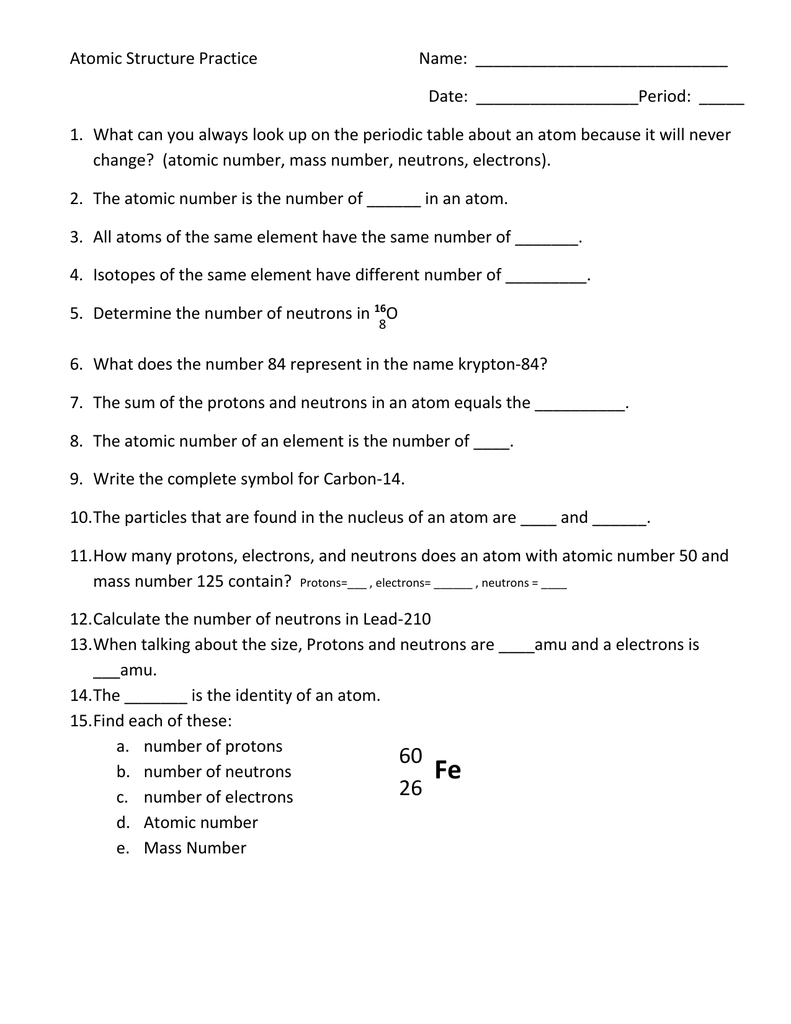- When you have finished the test, click on the ANSWERS button and see how well you have done. Test Number PS-1030. Quick Questions. 1) All atoms are the same. 2) All atoms of the same element are the same. 3) All atoms contain neutrons. 4) Protons have more mass than neutrons.
- It has the same mass as the proton. The atomic number of an element is equal to the number of protons while the mass number is equal to the sum of the number of protons and neutron.
- All Atoms Of The Same Element Have The Same Group Of Answer Choices
- All Atoms Of The Same Elemnt Have The Same
- All Atoms Of The Same Element Have The Same Properties
True or False: All atoms of the same element contain the same number of neutrons.
Click to see full answer.
Also to know is, do all atoms of the same element have the same number of protons?
The number of protons in the nucleus of every atom of an element is always the same, but this is not the case with the number of neutrons. Atoms of the same element can have a different number of neutrons. These atoms are called isotopes, which are atoms of the same element that have a different number of neutrons.
Secondly, can isotopes have different number of electrons? The atoms of a chemical element can exist in different types. These are called isotopes. They have the same number of protons (and electrons), but different numbers of neutrons.
In this manner, are all atoms of one element the same?
Yes, all things are made of atoms, and all atoms are made of the same three basic particles - protons, neutrons, and electrons. But, all atoms are not the same. You know that the number of protons in an atom determines what element you have. For instance hydrogen has one proton, carbon has six.
Why do different atoms of the same element always have the same atomic number but can have different mass numbers?
Atoms of the same element always have the same number of protons ( is it had a different number of protons it would be a different element). However atoms of the same element can have different numbers of neutrons (this gives them a different mass number). Different versions of the same element are called isotopes.
Why do all atoms of an element have the same atomic number?
1 Answer

Because atoms of an element has, essentially, the same number of protons.
Explanation:
For ground state (no charge) atoms, you have to remember the following facts:
1.) The atomic number is the same as the number of protons.
2.) The number of electrons is the same as the number of protons.
3.) The atomic mass is the sum of the number of protons and neutrons.
For ions (which may either have a positive or negative charge), only the number of electrons are being changed. If the ion is negative it means that an electron has been added to the configuration. If the ion is positive, it means that an electron is removed from the configuration.
For example,

For isotopes (elements that have different masses, no charge), only the number of neutrons has been changed. Examples are Carbon-12, Carbon-13, and Carbon-14.
All Atoms Of The Same Element Have The Same Group Of Answer Choices

Carbon-12 : 6 protons +
Carbon-13 : 6 protons +
Carbon-14 : 6 protons +
All Atoms Of The Same Elemnt Have The Same
Because none of these situations change the number of protons, the atomic number stays the same regardless.

All Atoms Of The Same Element Have The Same Properties
Related questions
